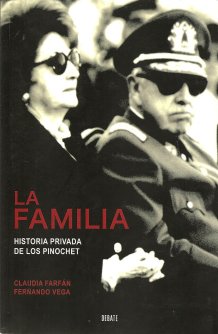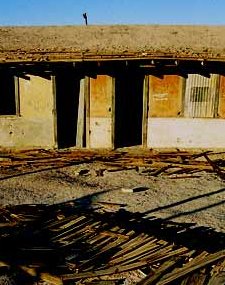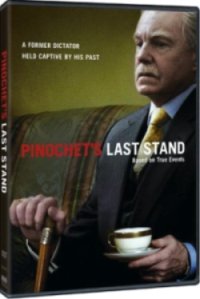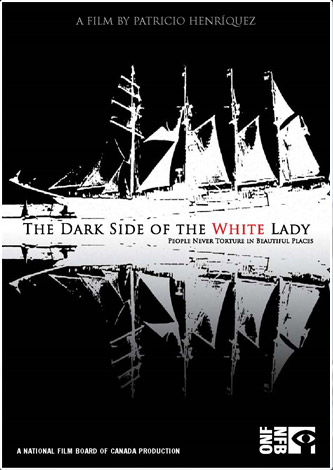
|
Index:
Home Counter: |
Reviews
Title: La Familia – Historia Privada De Los Pinochet Authors: Claudia Farfán and Fernando Vega. Publisher: Debate Yera: 2009 Pages: 230 ISBN: 9789568410278
It is written by the two Chilean journalists, Claudia Farfán and Fernando Vega, and they have done it in a way, that strikes the reader by its very sober and matter-of-fact tone, that makes it a prime example of investigative journalism. There is no question, that there lie enormous amounts of research behind the book. Pinochet was a man who to an extended degree did not let people look into his inner life, and the book depicts this very well. Also from declassified CIA documents from the early 1970's do we know that neither the informants to the CIA nor anyone else knew what this high ranking general, and just prior to the coup army chief felt, meant or stood for politically, or how he stood in regard to Allende's Unidad Popular government or to the inevitably coming coup. By the way, rumour has it he was an excellent poker player. Pinochet married in 1943 – like his father upwards – to Lucía Hiriart, the daughter of a former minister. Lucy, as he called her, was exactly like his mother e strong and firm character with social ambition, and in the book is written of a Oedipus complex. In 1956 he and a number of other officers were appointed to serve at Academia de Guerra in Ecuador, the country's officers school. Ecuador had not the same prussian schooling of it's army, like Chile did. Therefore Pinochet and the others were commissioned to give Ecuador's officers school a splash of this military professionalism. On the home page of the officers school Pinochet to this day is mentioned with gratitude for his »valuable contribution« to the school from 1956-1959. But the art of war was not the only occupation that Pinochet excelled at in Ecuador, and the book's first chapter deals with that. From later CIA documents and other sources we know that he genuinely loved parties always with effusive compliments to the women of the party. The forty-something father of three is reported in the book to have been a true magnet on the well-off women in the capital Quito. It came to numerous affairs. He had such a hefty affair with a beautiful pianist in her mid 30's, divorced mother of two boys with auburn hair and green eyes of Arabic descent that he nearly lost everything Her name was Piedad Noé. The affair has been known in some circles ever since as a »not to well-kept secret«, and was written about a couple of years prior to this book that now brings a detailed account. It went so far that Pinochet's wife after 1½ years in Ecuador left her husband and travelled back to Chile to live with her parents there. By the way with the couple's fourth child, Marco Antonio, in her womb. Pinochet's mother, Avelina, stood by her son in the entire course as a close confident. Pinochet saw his mission through in Ecuador and at last returned to his Lucy in Chile, which secured that the major could continue his rise through the military ranks – it was custom that officers who divorced did not advance further through the ranks. The third chapter of the book deals with on señora Lucía Hiriart, Pinochet's wife. For her the coup in 1973 and the ascent to becoming first lady was some bonus. She immediately saw to it that she became the leading lady among the wives in the higher circles in the military society. One of the sections on her in the book is called Guardiana de la moral, »The Guardian of Morality«. She was by the staff called la tía, »the aunt«, and she got an entire flat in the government building to manage en charity organisation and to preach what one could call her own, Chilean version of Kinder, Küche, Kirche, with an exaggerated emphasis on the mother, the marriage and the family as the centre of the Pinochet movement. Her own personal dossier in that regard is a mixed bag. One is reminded that of her own, five children only one, the youngest son, Marco Antonio, have been able to maintain his marriage. The four others have all been married and divorced up to four times. The book contains a detailed account of the destinies of the five children, how having a dictator as a father influenced their personal and professional lives. And not really for the good, it must be said. For example: For the number two in the batch, Augusto Osvaldo, Quito in Ecuador was for him as a 11 year old the fourth city he had lived in, and he had a childhood marked by solitude. As he was not clever in school and not a strong person, his life has unfolded in from time to time tragicomic ways with failure following failure. Pinochet's favourite was the youngest daughter, Jacqueline. It was at her 14 year birthday on September 9th 1973 that Pinochet signed the hand written note from navy admiral José Toribío Merino, asking the other service chiefs to join in on the coup two days after, on the infamous Tuesday September 11th. The book also in detail depicts the nepotism, fraud and tax evasion on the part of Pinochet. Finally it is described how the family in degrading fashion went to pieces at the time of the end of Pinochet's tenure as head of state and later at the time of his detention in London from 1998 to 2000 almost totally dissolved. The talk of the town at the time of the publishing of the book was however the rumours of a sixth child out of wedlock. Cuban intelligence attempted in the 1980's to investigate into the case to be able to defame Pinochet, but found nothing. The two authors reject the rumours as pure myth. Pinochet and Piedad did by the way have sporadic contact till her death in the early 1990's and even met a few times. How peoples private lives influence how the World develops is well known. And the other way around, too. It is now up to the readers of this splendid book to ponder, how the history of Chile could have developed if Pinochet in the late 1950's had let his heart dominate his legendary, strong self discipline. The coup on September 11th 1973 happened violently and bloody regardless of him and – to reject another myth – also regardless of US intelligence CIA or other US involvement. How things happened in Chile in the decades following was however to a high degree marked by this man who's private life is now depicted in a sterling book.
Title: Memoria Desierta Director: Niles Atallah Company: DILUVIO Year: 2007 Duration: 30 minutter Participants: Rolando Carrasco, Santiago Cavieres, Roberto Saldívar og Pedro Barreda.
In the documentary are also two men, Roberto Saldívar andPedro Barreda, who so to speak maintain the old mine/contration camp on their own initiative. The documentary is published on DVD, and there is trailer and extra material etc. o the page http://www.chacabuco.org.
Title: Pinochet's Last Stand Director: Richard Curson Smith Company: HBO Films Yera: 2006 Duration: 77 minutter Actors: Derek Jacobi as Augusto Pinochet; Phyllida Law as Lucía Pinochet Hiriart; Peter Capaldi as Andy McEntee; Anna Massey as Margareth Thatcher; Michael Maloney as Jack Straw; Pip Torrens as Michael Caplan
The movie in part portrays the grass root work that was done in the organisation Anmesty International to get Pinochet sentenced and in part shows the actions that exiled Chileans carried out – protests in the streets outside Pinochets residens, outside court buildings etc. Furthermore the judicial game that was billed The Pinochet Case and Pinochet's relationship with his wife, and his relation to former UK premier Margaret Thatche are portrayed. In the movie is as a possible high point shown archived photage from the British Parliament and from Pinochet's return to the airport in Santiago. Starring is english Derek Jacobi (b. 1938) who rose to world fame 30 years earlier for his main role in the BBC series »I, Claudius«. the movie is released on DVD, and can be bought at the usual sites on the internet.
Title: The Dark Side of the White Lady (French: Le côté obscur de la Dame Blanche) Director: Patricio Henríquez Company: National Film Board of Canada/Office national du film du Canada Year: 2006 Duration: 102 minutes Participants: Maria Eliana Comené Hidalgo, Sergio Vuskovic Rojo, Patricia Bennetts, Edward Korry etc.
La Esmeralda is a steel-hulled four-masted barquentine tall ship of the Chilean Navy. It is currently the second tallest and longest sailing ship in the world, only second to the five-masted Royal Clipper, a cruise ship bulit in year 2000. La Esmeralda was built in Spain in the 1950's and was given to Chile as a form of payment of debt after the Spanish Civil War. The ship each year sails the oceans of the World and has the nick name La Dama Blanca, »The White Lady«. A number of victims of torture on the ship and relatives to dead ones are followed in the documentary, as they face the crew on the ship and the navy and confront them with their destinies. They also tell their stories to the camera as the ship is anchored in the harbour of Valparaíso. You also see interviews with former and present high ranking officers in the Chilean Navy. The US ambassador of in Chile from 1967 ot 1973, Edward Corry, is also interviewed. The creator and director of the documentary is Chilean Patricio Henríquez, who moved from Chile to Canada following the military coup in 1973. In Canada he worked in television in Québec. He has made documentaries from all over the world. In 1998 he made the documentary The Last Stand of Salvador Allende on the last hours of Salvador Allende, and in 1999 the documentary Images of a Dictatorship. The documentary can be seen on the internet from the adress: http://www.nfb.ca/film/dark_side_of_the_white_lady/ The documentary was released on DVD in 2009. |



